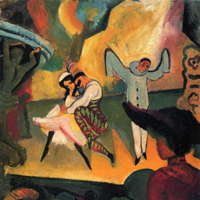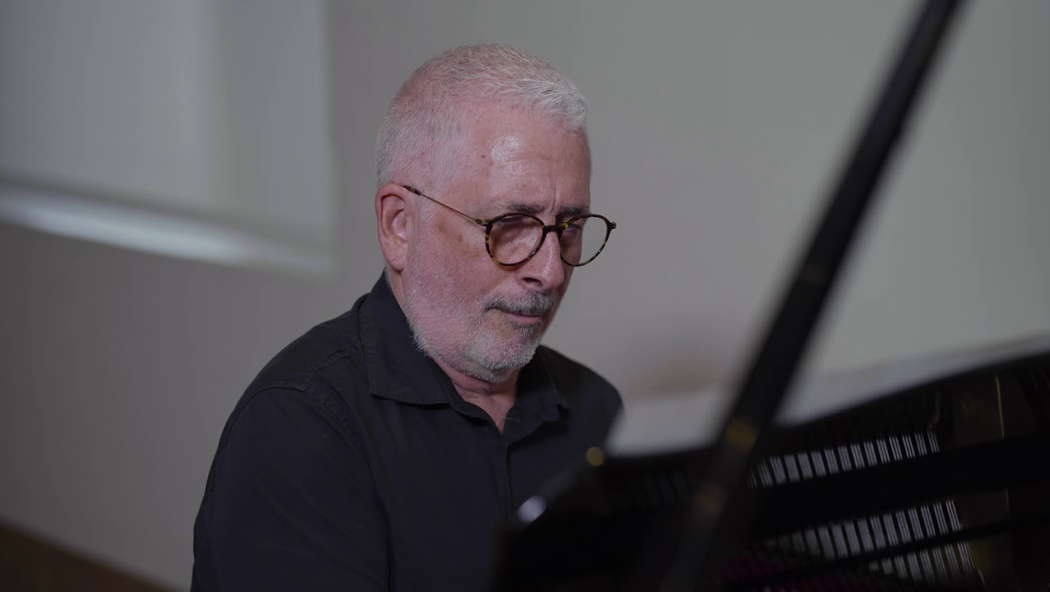 DISCUSSION: John Dante Prevedini leads a discussion about Composers, individuals or collective?, including contributions from David Arditti, Halida Dinova, Robert McCarney and Jane Stanley.
DISCUSSION: John Dante Prevedini leads a discussion about Composers, individuals or collective?, including contributions from David Arditti, Halida Dinova, Robert McCarney and Jane Stanley.
- Jeffrey Lloyd-Roberts
- Julian Reed
- Sergei Vasilyevich Rakhmaninov
- Orkney
- Borys Mykolayovych Lyatoshynsky
- Foulds
- John Tavener: Song for Athene
- Shostakovich: Piano Concerto No 2
 ROMANTICISM: Explore the late George Colerick's fascinating series of articles encroaching on the subjects of melody, romanticism, operetta and humour in music.
ROMANTICISM: Explore the late George Colerick's fascinating series of articles encroaching on the subjects of melody, romanticism, operetta and humour in music.
Fascination with the Macabre

RON BIERMAN talks to opera composer Nicolas Reveles
Recently retired Nicolas Reveles was the face of San Diego Opera for forty years, known to most opera goers primarily because of his informative and entertaining pre-performance talks. I suspect few in the audience knew he was also an opera composer, a choir director and a piano prodigy.
In an hour discussion via Zoom, we spoke about his background and how he came to write Ghosts, a three-act opera that will premiere at the San Diego Opera in April. Ghosts echoes a scene from Sextet, an earlier work he'd written on commission for San Diego's Diversionary Theatre. The scene reflected his love for the horror genre.

Online advertising for Nicolas Reveles' Ghosts at San Diego Theatres
'And it had stuck with me. I thought it was the best scene of the opera's six, and I always wanted to either revisit it or find another way of writing a similar piece, like a one act opera for a small group of singers and players in a small space. The right subject never came to me until I met Michael Vegas Mussman at a party.
'He's a young playwright in the area and was interested in writing a libretto. After a long conversation, I explained what I was looking for, but he didn't like horror. I thought, well that's the end of that. So it was a surprise when I heard from him a few weeks later. He'd discovered a film that inspired him, the 1950s French horror film Diabolique. I knew it well and thought, oh my God, that's perfect. It's just the right idea.'
The idea became Dormir, with a libretto by Mussman based on the film. 'Halfway through the movie, we see two women murder a man who is the husband of one and keeps the other as a mistress. With another forty-five minutes left, where on earth is this film going? And it's very simple. One of the women just starts seeing the man in various places. Why and how?'
Although General Director David Bennett took to the concept and wanted to stage it, they agreed the opera was too short to stand on its own. Reveles told Bennett he'd see if he could come up with another story.
'And I did. It came from a dream, a vision of a woman driving up to an old house in the country in midwinter, taking two children out of the back of the car, unloading the trunk, walking up the steps of this old ramshackle house, going into the house and closing the door. Then we see what happens to her and the kids while they are there.'
For the first time, he decided to write his own libretto, and he is proud of how it turned out.
'It's a standard ghost story on one level, but with a deeper level that describes how we are affected by the past. The idea that The Body Keeps the Score. We live with the ghosts of past trauma just as ghosts inhabit a house.
'I played that for David, he loved it and said, "Okay, we've got an evening. We've got a pair. That's great."' Mezzo-soprano Emily Fons was equally excited and wanted to do the role in what they titled House. Two operatic stories soon became a final trio when Bennett hired stage director John de los Santos. 'He's a lover of horror as well as a brilliant stage director. At the time, I was working on a piece inspired by my grandfather, who was a Hollywood studio artist.' He grew up in Mexico and came here during the revolution in 1906. 'His paintings are very dark. So I have a feeling that some of the darkness I'm attracted to comes from the paintings I grew up with.'
One of those paintings had been giving Reveles nightmares. He gave it to Santos and got back a libretto two days later. 'It's about an art collector with one more space on his wall. He brings home the painting of a tree and finds that misfortune befalls those who see or touch it.
'It's very like Edgar Allan Poe, and a great opener.' That opener, Eden, is followed by House. Dormir is the third and closing act.
All of Dr Reveles' operas have an element of horror and the supernatural. His fascination with the macabre is rooted in the paintings, fairy tales, and operas of his childhood. Like many successful musicians, he was surrounded by music when young. 'Well, my dad was a jazz musician who made his living playing all the cocktail lounges in San Diego. My mom certainly loved classical music and played, but not professionally.'

Nicolas Reveles
Jazz appealed but couldn't match mom's collection of opera recordings. When they selected Bartók's Bluebeard's Castle from a record-of-the-month club, he couldn't have known that its overwhelming impact would eventually lead to performances of his own operas.
Continue to part two of the interview >>
Copyright © 27 January 2023
Ron Bierman,
San Diego, USA



